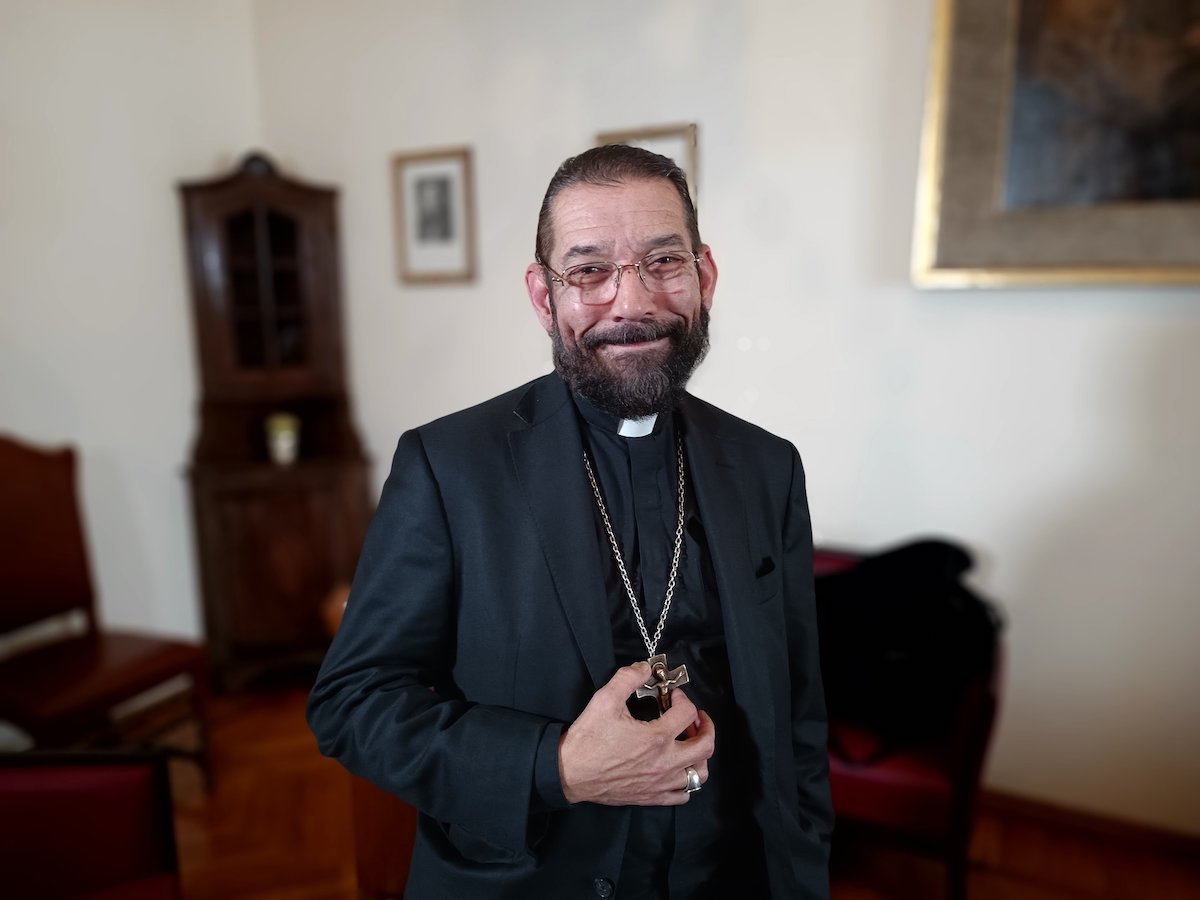By Cindy Wooden, Catholic News Service
VATICAN CITY (CNS) — In their discussions about the life of the church and “synodality,” or walking together, Catholics in United States and Canada noted the negative impact “polarization” is having on the church, said Bishop Daniel E. Flores of Brownsville, Texas.
“Politics gets mixed into it, and it’s not that politics doesn’t have a place in the way the church thinks about things,” he said, but the situation seems to have gotten to where Catholics “immediately sort of categorize people. I think people are aware of that and really want to find a way out of that, so that we can talk to each other as Catholics, as baptized trying to be faithful to Christ.”
Figuring out how to deal with social issues in a Christian way “is going to take a lot of work, and it’s OK to disagree,” he said. “But you don’t have to demonize the other person who thinks differently than you do.”
Bishop Flores, chairman of the U.S. bishops’ Committee on Doctrine, spoke to Catholic News Service April 12 about the release of the final document from the North American continental stage of the process leading up to the assemblies of the Synod of Bishops at the Vatican in 2023 and 2024.
The Texas bishop, who had shepherded the U.S. portion of the synod process, was at the Vatican for a weeklong meeting of the synod preparatory commission.
The discussion of polarization in the 12 listening sessions for the U.S.-Canadian continental consultation is related to participants’ emphasis on “baptismal dignity” as the source of communion in the church, of shared responsibility for the church’s mission in the world and of the call to be more inclusive, Bishop Flores said.
“We’re bound to Christ by baptism,” he said, which “also necessarily means we’re connected to each other. And that’s part of the of the whole reality of who we are. We don’t control who we’re connected to, Jesus does, and so we need to let that dignity show itself.”
Bishop Flores encouraged people to read the continental report trying “to imagine the voices of people speaking from many, many different walks of life” and remembering that all of them making the effort to participate in the sessions is “a sign of their love for the church and their desire to do something good together.”
Reading the document “with an open heart,” people will find things they agree with and ideas they do not share, “but that’s OK,” the bishop said. “It’s a big church, and we need to at least hear each other before we can kind of think together as to how to move forward.”
From the listening sessions held for participants from the United States and Canada, Bishop Flores said one of the themes that came out most strongly was “wanting to be a church that continues this experience of communion in a practical sense, of being able to get together and speak about matters of the faith and matters of the church that are very important to people.”
People “were really happy just to have been asked to share their experience of the life of the church,” Bishop Flores said, and they would like to have similar opportunities in the future.
In the North American report and in the other regional reports he has read, Bishop Flores said he sees a common theme of Catholics feeling “the world is changing so fast” and wanting to find the best ways for the church to respond to those changes.
Certainly in North America, but also in most other parts of the world, he said, Catholics highlighted a need for “formation” and not primarily as a call for religious education classes, but “formation in a synodal mindset,” one that helps people understand and appreciate being “a people of the Word of God who gather together and talk about it and pray together and then let that inform us as we move forward.”
On a whole range of issues, including on the repeatedly stressed issue of reaching out to and involving young people in the life of the church, Bishop Flores said the discussions were not about “what the church needs to do” but “‘how can we do this better’ — and that’s an important shift.”
The North American synthesis also includes a separate section, titled “Bishops’ Reflections on the Experience of Synodality in North America.”
Bishop Flores said the key reflection was that bishops found their diocesan listening sessions “very invigorating” and want to find ways to continue having that kind of interaction with the variety of people that make up the church in their dioceses.
“A bishop needs to find new ways to kind of stay in touch with what his people are living, are thinking and are praying about,” he said.
The bishops, like many other people who participated in some stage of the synod process, he said, also have questions about what it means, on a practical level, to be a “synodal church” that listens to and relies on the gifts of everyone while also being a “hierarchical church.”
And that is a discussion that will continue, he said, including at the synod assemblies.
The continental phase also again heard calls for the church to be more welcoming and inclusive. “The groups named during the continental stage included women, young people, immigrants, racial or linguistic minorities, LGBTQ+ persons, people who are divorced and remarried without an annulment, and those with varying degrees of physical or mental abilities,” the report said.
Bishop Flores said he expects “lively discussion” on that topic as well.
“What does it mean as a church to be open and welcoming to people, especially in the context of the dignity of the baptized,” is a question to be explored, he said. “The continental document does not offer us a solution to these things, it just raises them up. This is what people really are thinking about.”







